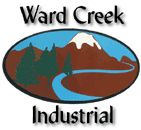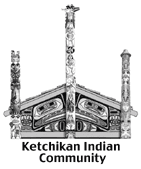 By KEVIN DIAZ McClatchy Newspapers March 28, 2006
The "red team" exercises, conducted simultaneously on Dec. 14 at two unidentified border crossings, were carried out by the Government Accountability Office at the behest of the Senate Permanent Subcommittee on Investigations, which has been analyzing security at ports and border crossings over the past three years. Committee chairman Norm Coleman, R-Minn., who is holding two hearings this week on the findings, issued a statement Monday critical of the Department of Homeland Security and the Nuclear Regulatory Commission.
Particularly alarming, Coleman said, was the investigators' ability to buy radioactive materials in the United States by telephone without any government licenses, and then exit and re-enter the country with fake NRC documents and bills of lading. "This operation demonstrated that the Nuclear Regulatory Commission is stuck in a pre-9/11 mindset in a post-9/11 world and must modernize its procedures," said Coleman. NRC officials disputed that the amount of radioactive material purchased for the investigation was cause for alarm. "You can basically blow up a smoke detector and say you're spreading radioactivity, because there's an americium chip inside," said NRC spokesman David McIntyre. "But it wouldn't make a very effective dirty bomb." Investigators for the GAO, the investigative arm of Congress, did not disclose how much or exactly what kind of radioactive material was used in the investigation, nor what states they crossed into in their rented cars. Their report says they used the National Institute of Standards and Technology's threshold for the amount of radioactive material needed to make a dirty bomb. Two senior committee staffers said the only good news from the episode was that new radiation detection devices now being used at most overland border crossing functioned properly and alerted U.S. Customs and Border officials. The bad news is that the border officials let the cars pass through after inspecting their doctored paperwork. Worse, the investigators said, similar radiation detection equipment is currently being used to check less than 40 percent of maritime containers at the nation's seaports. The findings were contained in three GAO reports released Monday calling into question the nation's efforts to combat potential nuclear smuggling by terrorists. One of the GAO reports pointed to the slow progress in deploying radiation detection equipment to the nation's sea terminals, concluding that it is "unlikely" the Bush administration will meet its goal of installing the equipment in all the nation's ports by September 2009. Another report questioned the government's efforts to track and monitor $178 million in radiation detection equipment provided to Russia and 35 other shipping nations. The report's authors singled out Russia as a particular concern because of allegations of widespread corruption by border security officials there. But the most controversial finding came out of the GAO's undercover operation transporting radioactive material across the nation's northern and southern borders. GAO investigators posing as employees of a fictitious Washington, D.C., company said they were able to buy radioactive material by telephone and have it mailed to them at an address in the nation's capital. "This was to demonstrate that anyone can purchase small quantities of radioactive sources for stockpiling because suppliers are not required to exercise any due diligence in determining whether the buyer has a legitimate use for the radioactive sources," the report said. "Suppliers are not required to ask the buyer to produce a (NRC) document when making purchases in small quantities." NRC officials said radioactive materials are commonly shipped commercially in the United States for a variety of medical, scientific and industrial applications, including the manufacture of household smoke alarms. Most of the licenses needed for such transactions are now issued by states, McIntyre said. McIntyre said the NRC is concerned that the investigators were able to forge NRC documents authorizing the transfer of radioactive materials by using documents easily available to the public on the Internet. Customs and Border Protection officials in the Department of Homeland Security told committee investigators that they are working on ways to verify NRC licensing documents at the borders. McIntyre said the NRC also has efforts underway to make that "difficult, if not impossible," to counterfeit its documents. Hearings Tuesday and Thursday in Congress are likely to focus on the "concern threshold" for when the states and the federal government must license the sale and transportation of radioactive materials. Coleman, faulting the NRC for a pre-9/11 mindset, said "it is easier to buy low-grade radioactive material for a dirty bomb than it is to buy cold medicine that has been restricted because of the meth epidemic." McIntyre said the NRC's standards are in keeping with the times. "We were working on the security of radioactive materials before 9/11 and we've been working much harder since 9/11," he said. "It is of prime importance to us 24-7." Scripps Howard News Service, http://www.shns.com Publish A Letter on SitNews Read Letters/Opinions
|
||


